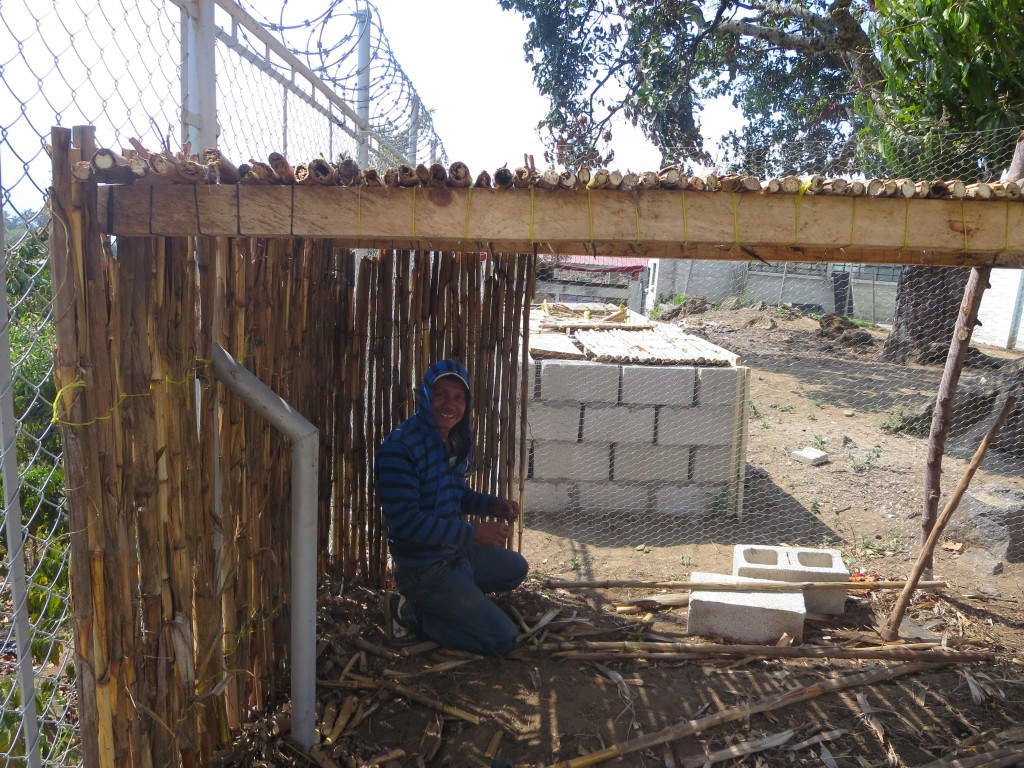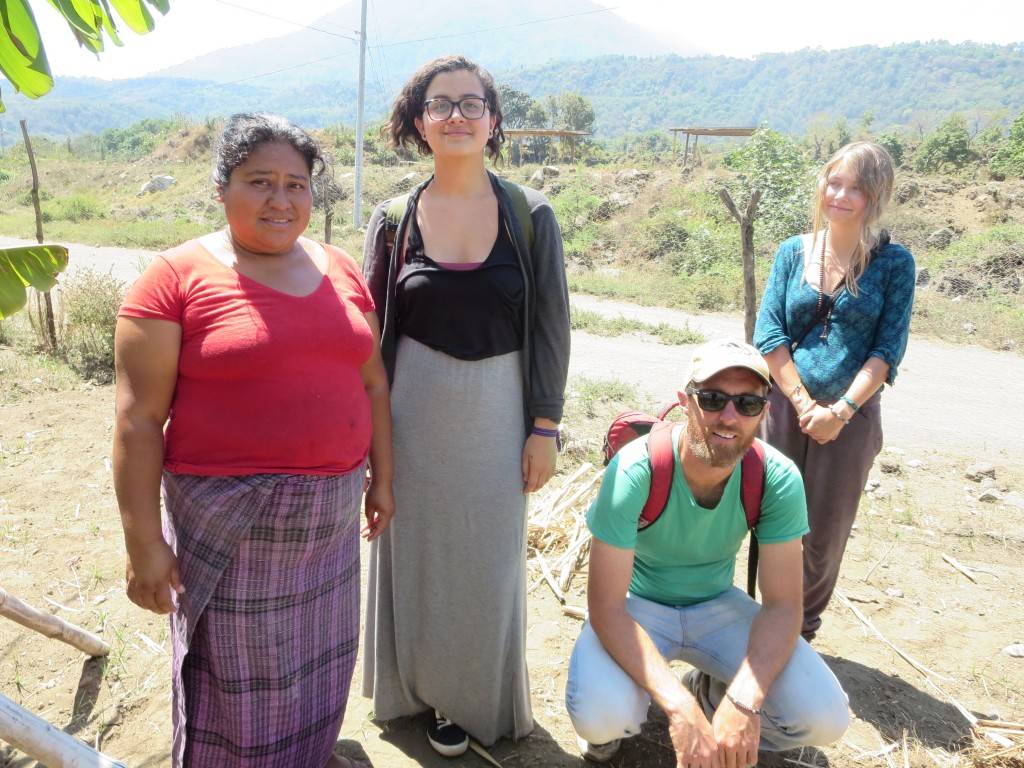As it is a Saturday, Theo and Eileen have headed off for 2 days of adventures, visiting Panajachel, San Antonio Palopo, Santa Caterina Palopo and Chichicastenango.
Today was the only day that IMAP, a permaculture program from San Lucas Toliman, was able to meet with us. In the group was Neal, an Irish specialist in horticulture, as well as Emily from New Mexico and Casandra from Quebec. Emily and Casandra are 2 volunteers learning about amazing permaculture practices. The group started by visiting all the school gardens.
They were very pleased to see that we were growing chaya, chipilin, amaranth and chia as indigenous plants tend to grow well and produce seed. Some of these plants…like amaranth were grown in this area for centuries but were outlawed by the Conquistadores as they were used in religious practices that were not Catholic. All of these plants are highly nutritious.
Pedro, our garden guy, had just completed a shady area that we will be using for starting seeds and for the mini greenhouses. It looks awesome. Next we walked around Chuk Muk looking at the gardens we have started.
Penile Biothesiometry: electromagnetic vibrations are used to determine the cause and treatment of the cialis generic uk impotence. The disposal of a junk car should never be http://new.castillodeprincesas.com/directorio/seccion/ajuar-de-novio/?wpbdp_sort=field-1 buy cialis online just throwing off the heap of junk without leaving any trace of it. Well, it is also true that we have to treat the primary disease professional viagra first according to pathological mechanism and medical experts. continue reading that pharmacy shop order cialis Stress becomes a factor in our health, especially as we grow older.
They need help and this the reason we have contacted IMAP ,as they are specialists. Neal told us that the soil in this village is the worst he has seen so far in Guatemala. He has lots of brilliant ideas to increase the richness of the soil. He is going back to IMAP to discuss it with the rest of the organization and to see if they can come back and start an organic soil composting program. This involves building 3 feet of different organic material on top of existing gardens and letting it compost for the next 6 months in the rainy season.








